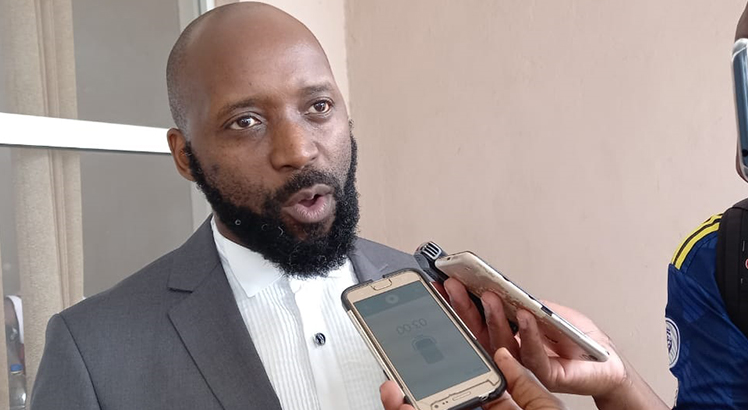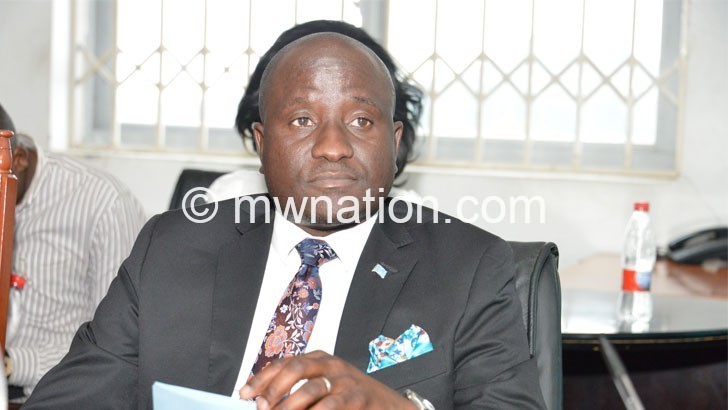No action on K1.6bn embassy ‘looters’
Authorities are yet to probe some former diplomats for their role in the theft and abuse of over K1.6 billion in embassies between the years 2013 and 2019, three months after a Public Accounts Committee (PAC) of Parliament deadline.
PAC issued the ultimatum in June this year for the officers to act on recommendations it made after reviewing an Auditor General’s audit report on how over K1.6 billion was stolen and abused in the country’s 19 foreign missions.

The controlling officers who were supposed to act are the Secretary to the Office of the President and Cabinet (SPC), the Director of Public Prosecutions (DPP), the Attorney General (AG), the Secretary to Treasury and the secretaries for Justice and Foreign Affairs.
In the report presented to Parliament in June this year, PAC recommended that all diplomats involved in the theft or abuse of the money should be prosecuted, and in some cases, remit the funds with accrued interests as soon as it is practically possible.
But in a written response this week, AG Thabo Chakaka-Nyirenda said he had discussed the matter with the DPP and had agreed that the latter should pursue the criminal route while he would take the civil route. He did not elaborate.
On his part, DPP Steven Kayuni said the embassy issue is among the five letters that his office will be sending to the Office of the Inspector General of Police this week on several investigations.
“The letters will be sent tomorrow [Friday]. They also include a probe into the Mombera University, Kamuzu International Airport tower lift, abuses in embassies and the Malawi Electoral Commission and the Alliance Capital issue.”

In a brief response, Secretary for Justice Alison M’bang’ombe said: “The Ministry of Justice can only move after getting hold of the audit which we have not”.
Secretary to Treasury was yet to respond to our inquiry on what action his office has taken as per PAC’s recommendations.
PAC chairperson Mark Botomani decried the slow pace at which the law enforcement agencies are moving to prosecute errant diplomats and officers.
He also said his committee was supposed to summon the suspected former diplomats to respond to queries, but they were unable to meet as a committee because of the group’s leadership wrangle.
Botomani said the wrangle derailed PAC’s progress on a number of issues, including getting updates from controlling officers on the recommendations.
In September this year, former PAC chairperson Shadric Namalomba obtained an injunction restraining Parliament from recognising Botomani as PAC chairperson, but this week, the court ruled in favour of Botomani.
Said Botomani: “We were unable to meet as a committee because of the leadership wrangles but now we want to take advantage of Parliament meeting in the coming few weeks to make follow ups and ensure that our recommendations are adhered to.”
He also said his committee expects all the relevant offices to abide by the recommendations.
How funds were stolen or abused
In its review of the Auditor General’s report, PAC observed that abuses of funds ranged from transfer, expenditure and payment without following laid down procedures, breach of contractual obligations, wasteful and over-expenditure of public resources, lack of effective internal financial control systems and abuse of visa funds and passport fees.
According to the report, the audits depicted a trend that Malawi’s foreign missions are immune to the stipulations in the Public Audit Act, the Public Procurement Act, the Public Finance Management Act, the Treasury Instructions, and all other relevant legal statutes that govern the management of public resources.
Weekend Nation’s calculations of the audit inspection show that visa funds and passport fees amounting to K250 million were abused in several missions such as Malawi Embassy in South Africa where a total of seven visa books were sold for K21 236 960.00 but not recorded in the security document register.
An audit inspection of the Malawi Embassy in New Delhi, India, covering the years 2014 to 2016, which was completed in December 2016, showed that visa fees totalling K132 921 589.77 were not collected or recorded anywhere.
Similarly, in the Malawi Mission in Washington DC, the audit exercise of 2018 revealed that the foreign mission used $214 526.25 (K220 103 676) from visa account for Other Recurrent Transactions (ORT) activities, personal emoluments, insurance, and loans.
The PAC review also observed that the Embassy in Berlin had poorly drawn up local contracts, exposing the Malawi Government to a possible loss of K120 301 065.
An extensive breach of contractual obligations was reported in the 2013 report, particularly in Nairobi, Kenya, where the Malawi Government questionably engaged contractors who ended up not delivering on their contracts despite being paid $500 000 (K500 million).
In another case, contrary to laid down procedures, in the financial year ended June 30, 2014, the Malawi High Commission in Pretoria procured two motor vehicles at K31.4 million using single-sourcing without obtaining ‘No objection consent’ from Office of director of Public Procurement and Disposal of Assets Authority, according to the audit exercise.
Similarly in June 2017, the Malawi Mission in Maputo also procured a car from Leites Toyota, Swaziland, at a cost of $74 223.95 (K76 152 798) without a budget.
In 2018, the audit pointed out that the Malawi Mission in New York overspent on personal emoluments and ORT to the tune of K389 952 445.88.
In addition to this over-expenditure, the mission overpaid rental fees’ costs to staff by K6.6 million.
Our analysis of the report also show that over K17 million was paid to suppliers through cheques drawn in the name of staff in Johannesburg, Malawi Embassy in New York and Washington DC, contrary to Treasury Instruction 5.19.3 which requires that payments for all vouchers must be made by cheque or direct debit to a bank account and that such payment should be paid direct to the supplier.
A peculiar incident happened in Maputo where the mission engaged an IT specialist, to service computers on a fixed monthly amount of $350 but an inspection of contract payments revealed that the mission continued to pay the IT specialist even after the expiry of the contract in June, 2017. The total amount paid (post contract expiry) was K2 606 428.60.
In 2016 in Belgium, there were cases of self-authorisation of allowances to the tune of K12 634 076.03 for foreign allowances and air tickets, which were signed by officers benefitting from the payment.
So far, only two diplomats—former Malawi deputy ambassador to Ethiopia Doreen Kapanga and former secretary for administration and finance Fletcher Chowe who were arrested in 2016—are answering a fraud case for being suspected of siphoning off $409 790 (about K420 million) from the public purse, and depositing it into their personal accounts.






One Comment